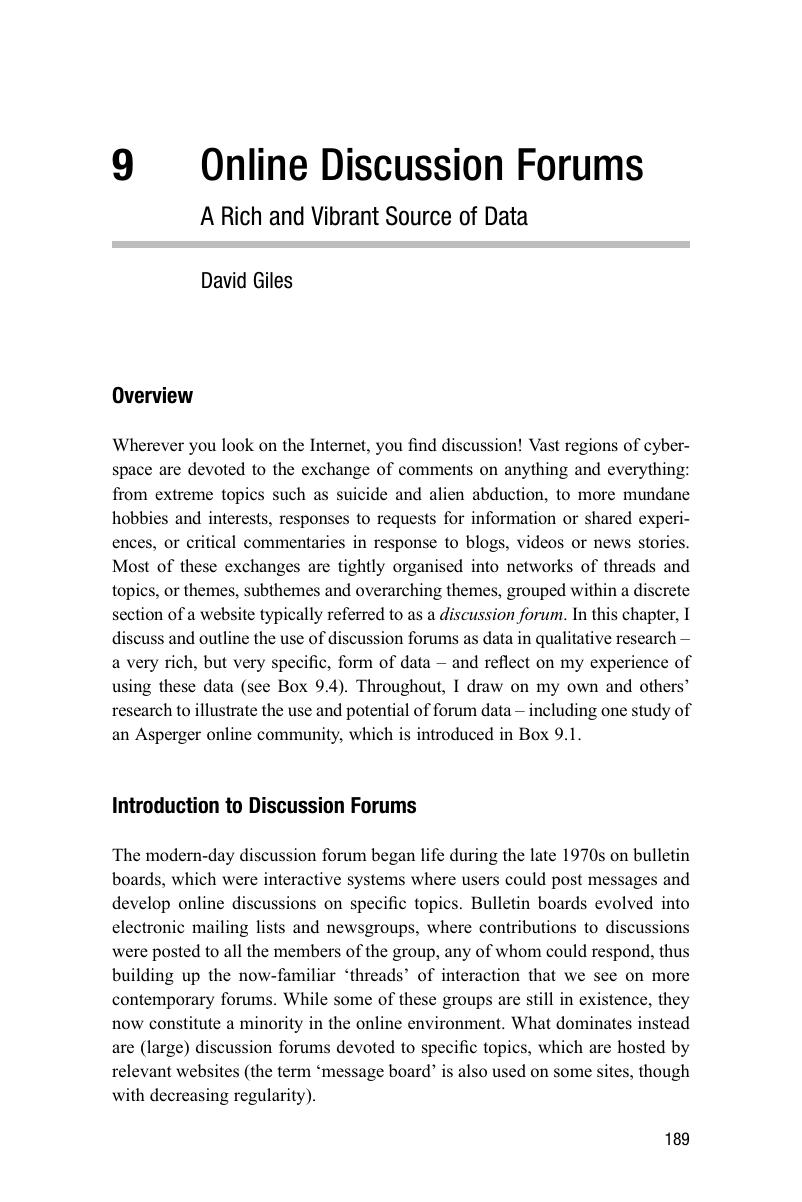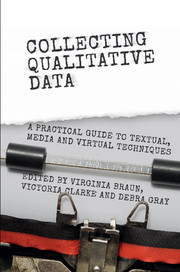Book contents
- Collecting Qualitative Data
- Collecting Qualitative Data
- Copyright page
- Contents
- Figures, Tables and Boxes
- Acknowledgements
- Contributors
- Foreword
- 1 Collecting Textual, Media and Virtual Data in Qualitative Research
- Part I Textual Data Collection
- Part II Media Data Collection
- 6 Making Media Data
- 7 ‘God’s Great Leveller’
- 8 Archives of Everyday Life
- 9 Online Discussion Forums
- Part III Virtual Data Collection
- Afterword
- Glossary
- Index
- References
9 - Online Discussion Forums
A Rich and Vibrant Source of Data
from Part II - Media Data Collection
Published online by Cambridge University Press: 06 October 2017
- Collecting Qualitative Data
- Collecting Qualitative Data
- Copyright page
- Contents
- Figures, Tables and Boxes
- Acknowledgements
- Contributors
- Foreword
- 1 Collecting Textual, Media and Virtual Data in Qualitative Research
- Part I Textual Data Collection
- Part II Media Data Collection
- 6 Making Media Data
- 7 ‘God’s Great Leveller’
- 8 Archives of Everyday Life
- 9 Online Discussion Forums
- Part III Virtual Data Collection
- Afterword
- Glossary
- Index
- References
Summary

- Type
- Chapter
- Information
- Collecting Qualitative DataA Practical Guide to Textual, Media and Virtual Techniques, pp. 166 - 188Publisher: Cambridge University PressPrint publication year: 2017
References
Further Resources: Online
The website MOOD: The Microanalysis of Online Data is an international network of researchers from various disciplines who use methods such as conversation and discourse analysis to conduct ‘microanalysis’ of online data, including things like social media as well as discussion forums: (http://moodnetwork.ruhosting.nl/)
For another, more recent, scholarly network that offers a more linguistic orientation to discourse analysis, see http://adda.blogs.uv.es/
Further Resources: Readings
References
- 6
- Cited by



